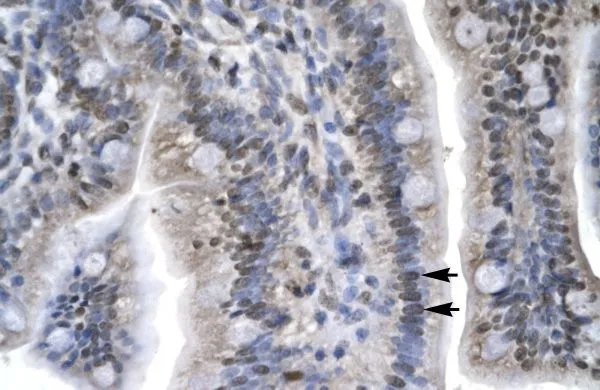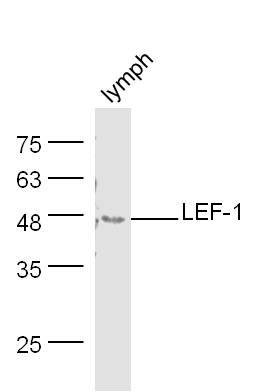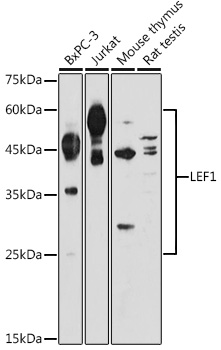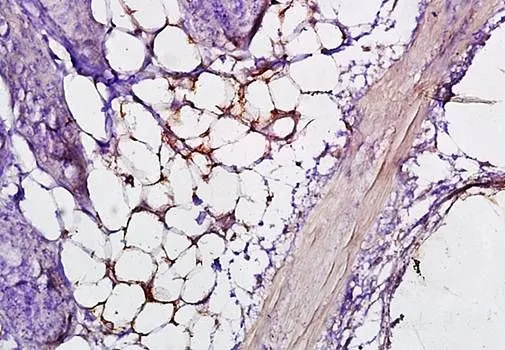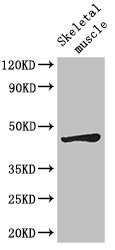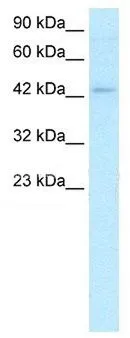
WB Suggested Anti-LEF1 Antibody Titration: 2.0ug/ml Positive Control: Jurkat cell lysate LEF1 is strongly supported by BioGPS gene expression data to be expressed in Human Jurkat cells
LEF1 antibody
GTX17431
ApplicationsWestern Blot, ImmunoHistoChemistry, ImmunoHistoChemistry Paraffin
Product group Antibodies
ReactivityHuman
TargetLEF1
Overview
- SupplierGeneTex
- Product NameLEF1 antibody
- Delivery Days Customer9
- Application Supplier NoteWB: 2.0 ug/ml. IHC-P: 4.0-8.0 ug/ml. *Optimal dilutions/concentrations should be determined by the researcher.Not tested in other applications.
- ApplicationsWestern Blot, ImmunoHistoChemistry, ImmunoHistoChemistry Paraffin
- CertificationResearch Use Only
- ClonalityPolyclonal
- Concentration0.5-1 mg/ml
- ConjugateUnconjugated
- Gene ID51176
- Target nameLEF1
- Target descriptionlymphoid enhancer binding factor 1
- Target synonymsECTD1, ECTD17, LEF-1, TCF10, TCF1ALPHA, TCF7L3, lymphoid enhancer-binding factor 1, T cell-specific transcription factor 1-alpha, TCF1-alpha
- HostRabbit
- IsotypeIgG
- Protein IDQ9UJU2
- Protein NameLymphoid enhancer-binding factor 1
- Scientific DescriptionThis gene encodes a transcription factor belonging to a family of proteins that share homology with the high mobility group protein-1. The protein encoded by this gene can bind to a functionally important site in the T-cell receptor-alpha enhancer, thereby conferring maximal enhancer activity. This transcription factor is involved in the Wnt signaling pathway, and it may function in hair cell differentiation and follicle morphogenesis. Mutations in this gene have been found in somatic sebaceous tumors. This gene has also been linked to other cancers, including androgen-independent prostate cancer. Alternative splicing results in multiple transcript variants. [provided by RefSeq, Oct 2009]
- ReactivityHuman
- Storage Instruction-20°C or -80°C,2°C to 8°C
- UNSPSC12352203

